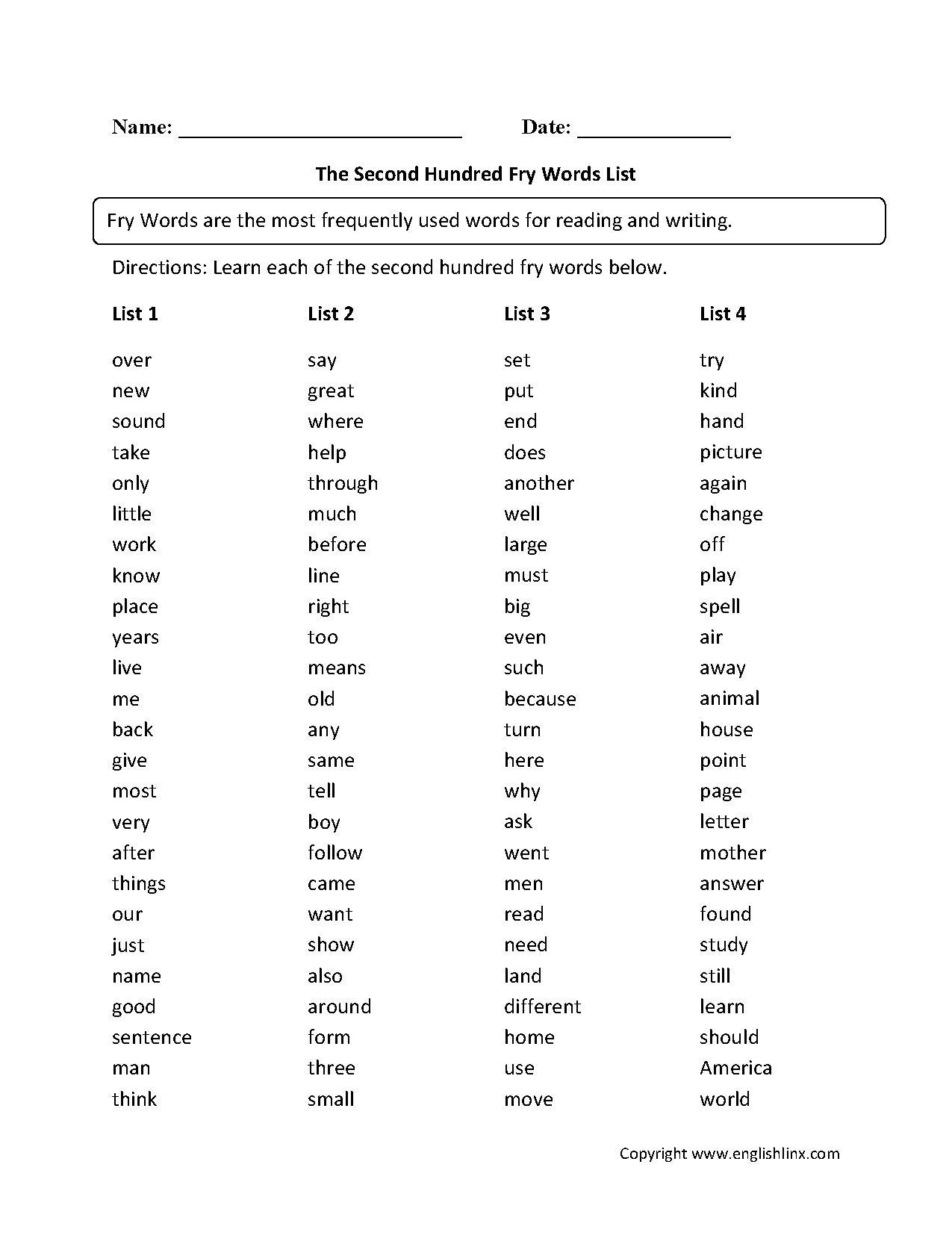As children progress through elementary school, it is important for them to expand their vocabulary in order to improve their reading and writing skills. In 2nd grade, students continue to build on the foundational vocabulary they learned in 1st grade and begin to encounter more complex words and concepts.
By introducing students to a variety of new words and encouraging them to use these words in context, teachers can help them become more proficient in language arts and communication. Let’s explore some key words that are typically included in a 2nd grade vocabulary list.
2nd Grade Vocabulary List
1. Adjectives: Words that describe nouns, such as colors, sizes, and shapes. Examples include “big,” “red,” and “round.”
2. Verbs: Action words that show what someone or something is doing. Common verbs in 2nd grade vocabulary lists include “run,” “jump,” and “eat.”
3. Nouns: Words that name people, places, things, or ideas. Students may encounter nouns like “dog,” “school,” and “friend.”
4. Adverbs: Words that describe how an action is done. Adverbs often end in “-ly” and modify verbs. Examples include “quickly,” “happily,” and “slowly.”
5. Compound Words: Two or more words that are combined to create a new word with a different meaning. Students may learn compound words like “sunflower,” “rainbow,” and “classroom.”
6. Synonyms and Antonyms: Words that have similar meanings are called synonyms, while words with opposite meanings are called antonyms. Students can expand their vocabulary by learning pairs of synonyms and antonyms.
By incorporating these and other key words into their daily lessons and activities, teachers can help 2nd graders develop a strong vocabulary foundation that will serve them well in their academic and personal lives. Encouraging students to read widely, practice using new words in writing assignments, and engage in discussions that require them to explain and define vocabulary terms can all contribute to their language development.
As children continue to learn and grow, expanding their vocabulary will open up new opportunities for communication, creativity, and critical thinking. By focusing on building a rich and varied vocabulary, educators can help students succeed in all areas of their academic journey.
